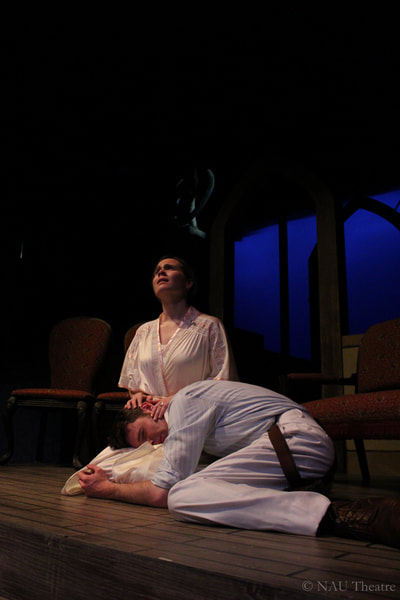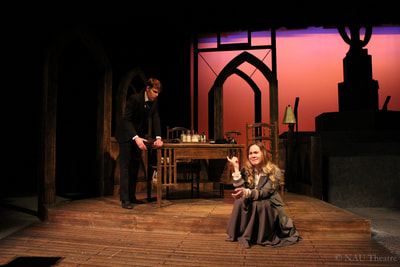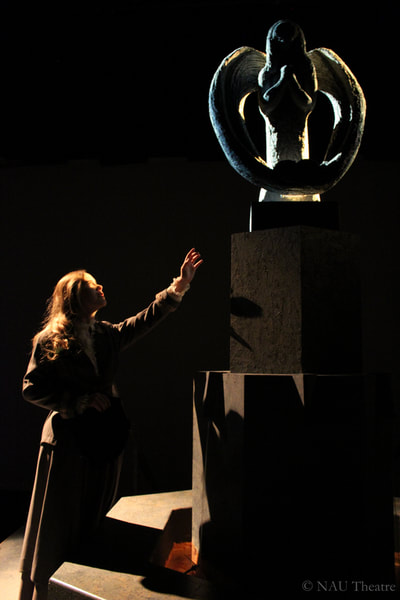Christina Gutierrez-Dennehy
At first glance, Summer and Smoke is a simple failed love story—a tale of two people who never quite occupy the same emotional space at the same time. At its core however, this is a play about the kind of irreversible metamorphosis that occurs only under immense heat and pressure. The kind of transformation that opens Alma’s eyes to the world of the physical, and John’s to the idea that there is something more to the human experience than a series of sensations. Theirs is a world on the brink of change, and although the play text (set in 1914) is deliberately devoid of references to America’s rapidly approaching involvement in WWI or the growing power women’s suffrage moment, the air is filled with the anticipation of transformation—or, in Williams’ terms, with smoke. Alma and John world is one in which the only thing that is fully real is the potential for transformation and alteration. A world in which neither faith nor the human senses can be trusted for long.









